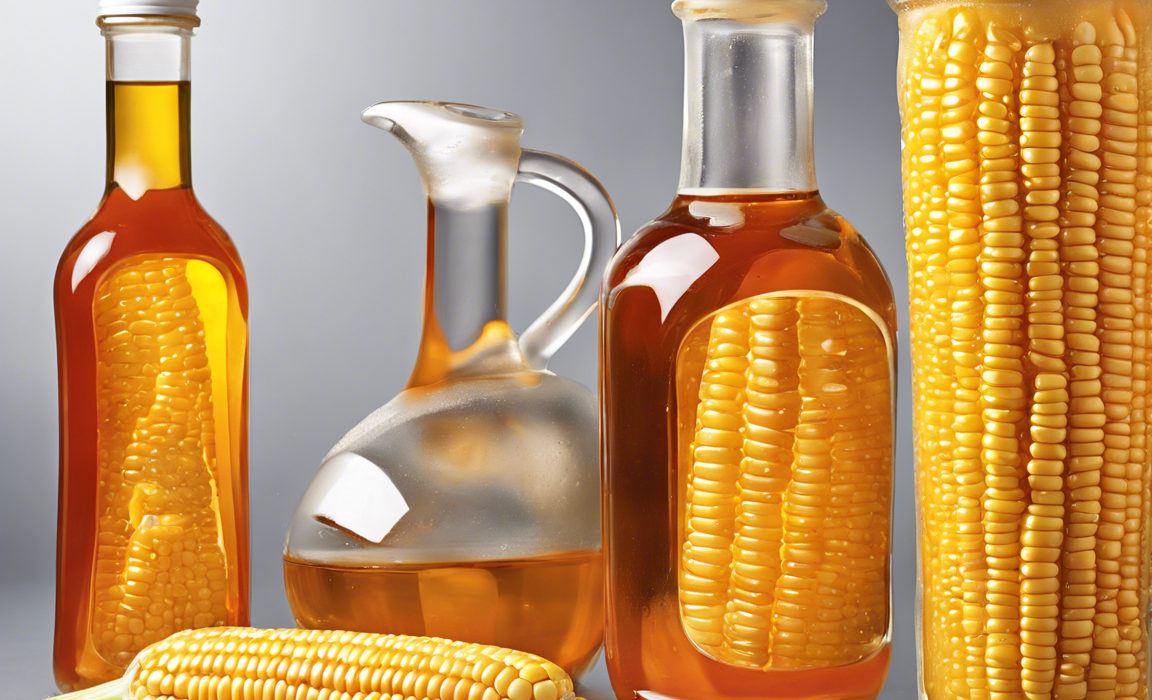In the world of nutrition, high fructose corn syrup (HFCS) has gained a controversial reputation. Found in a plethora of processed foods and beverages, this sweetener has been subjected to scrutiny regarding its impact on health. Let’s delve into the effects of HFCS on the body.
What is High Fructose Corn Syrup?
High fructose corn syrup is a sweetener derived from corn starch through a process that converts glucose into fructose, resulting in a mixture of both types of sugar. It is widely used in the food and beverage industry due to its low cost and ability to enhance flavor. HFCS comes in varying concentrations of fructose, with the most common types being HFCS 55 (which contains 55% fructose) and HFCS 42 (which contains 42% fructose).
Metabolism of High Fructose Corn Syrup
When consumed, HFCS gets metabolized in the body similarly to table sugar or sucrose, which is a disaccharide made up of glucose and fructose molecules linked together. However, due to the altered ratio of glucose to fructose in HFCS compared to sucrose, some argue that it may have different effects on the body.
Effects of High Fructose Corn Syrup on Health
1. Weight Gain and Obesity:
Excessive consumption of HFCS, like any added sugar, can contribute to an increase in calorie intake, leading to weight gain and potentially obesity. Beverages sweetened with HFCS, in particular, have been linked to weight gain due to their high sugar content and poor satiety.
2. Metabolic Health:
HFCS consumption has been associated with various metabolic disturbances, including increased insulin resistance, elevated triglyceride levels, and non-alcoholic fatty liver disease. These factors can contribute to the development of metabolic syndrome, a cluster of conditions that increase the risk of heart disease, stroke, and type 2 diabetes.
3. Heart Health:
Diets high in added sugars, including HFCS, have been linked to an increased risk of heart disease. Excessive fructose consumption can lead to elevated blood pressure, inflammation, and unfavorable changes in lipid profiles, all of which are risk factors for cardiovascular issues.
4. Brain Health:
Some studies suggest that high intake of fructose, as found in HFCS, may have negative effects on cognitive function and memory. Excessive fructose consumption has been linked to impaired synaptic plasticity and neuroinflammation, which could impact brain health over the long term.
Common Foods Containing High Fructose Corn Syrup
HFCS is prevalent in many processed foods and beverages, including:
- Soft drinks and sodas
- Fruit-flavored beverages
- Candy and confectionery
- Packaged desserts and baked goods
- Sauces, dressings, and condiments
- Breakfast cereals and granola bars
Moderation and Alternatives
While HFCS has been implicated in various health issues, it’s essential to note that moderate consumption of foods containing HFCS is unlikely to cause harm. However, reducing intake of added sugars, including HFCS, and opting for whole foods and beverages like water, unsweetened tea, and fresh fruits can benefit overall health.
Frequently Asked Questions (FAQs) About High Fructose Corn Syrup:
1. Is high fructose corn syrup worse than sugar?
Both high fructose corn syrup and table sugar contain similar amounts of fructose and glucose. While some studies suggest that fructose metabolism in HFCS may have unique effects on the body, both should be consumed in moderation to maintain a healthy diet.
2. Does high fructose corn syrup cause diabetes?
There is no direct evidence to suggest that high fructose corn syrup causes diabetes on its own. However, excessive consumption of added sugars, including HFCS, can contribute to insulin resistance and other metabolic issues that increase the risk of developing type 2 diabetes.
3. Can high fructose corn syrup lead to fatty liver disease?
Consuming large amounts of high fructose corn syrup can contribute to the development of non-alcoholic fatty liver disease (NAFLD). The liver metabolizes fructose into fat, which can accumulate and lead to liver complications over time.
4. How can I reduce my intake of high fructose corn syrup?
To reduce your consumption of high fructose corn syrup, read food labels carefully and choose whole, unprocessed foods whenever possible. Opt for beverages like water, unsweetened tea, or freshly squeezed juices instead of sugary drinks containing HFCS.
5. Is high fructose corn syrup addictive?
Some studies suggest that sugar, including high fructose corn syrup, may have addictive properties by activating reward pathways in the brain. Consuming sugary foods can lead to cravings and overeating, which may contribute to weight gain and other health issues.
In conclusion, while high fructose corn syrup is a commonly used sweetener in the food industry, its overconsumption has been linked to various health concerns, including weight gain, metabolic disturbances, and cardiovascular issues. Opting for a balanced diet rich in whole foods and minimizing intake of added sugars, including HFCS, is key to maintaining overall health and well-being.


